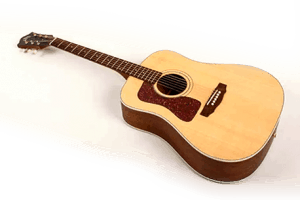Clarinet reeds play an important role in your instrument’s sound and playability. Whether you’re a beginner just starting to learn the clarinet or a more experienced player refining your tone, understanding reeds is essential. This guide will walk you through everything you need to know about clarinet reeds and answer some common questions.

What are clarinet reeds made of?
Clarinet reeds are typically made from cane. The woody stalks of this plant are cut into thin wooden strips to create reeds. Because cane reeds come from natural wood, each one is unique. Sometimes (but rarely), you’ll get one or two reeds in each box that don’t play as well as the others. Some reeds are also made from synthetic materials like plastic or composite materials. These synthetic reeds are more durable as they aren’t affected by humidity or temperature, but some players may find they lack the warm, organic tone of cane reeds.
What reed strength should I use?
Clarinet reeds are numbered by their strength. Reed strength refers to the stiffness of the reed (rather than the thickness) and usually ranges from 1 (soft) to 5 (hard). Each reed maker has their own scale for reed strength, so the same strength number in a different brand may not be the same. Softer reeds are easier to play, but produce a thinner tone and are not as easy to control (dynamics, articulation etc.). Harder reeds require more effort to play as they are more resistant, but can offer a richer sound and more control over your playing.
If you’re just beginning to learn the clarinet, a reed strength of 1.5 or 2 is generally recommended. These are easier to play, produce a good sound, will help you strengthen your mouth muscles (embouchure) and learn the basics. As your skills develop and your embouchure gets stronger, you will likely move up to a 2 or 2.5 strength reed for a richer tone and more control. Keep in mind that professionals typically use reeds between strengths 3 and 5. So don’t feel like you must aim for a strength 5 reed, as the majority of professional players play between a 3 and 4 strength.
How often should I change my clarinet reeds?
It’s best to change your clarinet reeds every 2 to 4 weeks, even if you’re not playing constantly. Every reed plays slightly differently, so some reeds last longer than others and this can also depend on how they are cared for. The average lifespan of a clarinet reed is about 10 hours of playing. You’ll know your reed is “dead” when it starts to feel soft and doesn’t produce a full, resonant sound anymore. Cracked or chipped reeds should also be replaced, as this can affect how well your clarinet plays.
Some players prefer to rotate through the entire box of reeds at a time instead of playing one reed until it’s dead. This is because your embouchure and air support gradually adjust to the reed. So switching out a decaying reed with a brand new one means you will have to readjust to it all over again. This also helps to break in your reeds evenly, making them last longer.
How to take care of your reeds
Make sure your reeds are resting on a flat surface and can breathe whenever you’re not playing them. Storing them in a reed case helps them last longer. Guards & cases keep the reeds ventilated and in place to prevent warping.
A new box of cane reeds will be very dry. This is why it’s important to break in your new reeds before playing them. This involves getting the reed acclimatised to moisture again and then drying out during storage. You’re also slowly exposing the reed to longer playing sessions. Playing reeds without breaking them in might cause them to get waterlogged, making them unplayable.
Rotate through your reeds often to break in multiple at a time. This way, you will always have several reeds ready to play.
What reed should I buy?
There are so many brands and styles of reeds that it can be hard to find the right one for your playing style. Some reeds are made specifically for different genres, including jazz, classical and contemporary music, but these are geared towards professional players. A normal cane reed is recommended for beginner clarinetists, and as you progress, it’s a good idea to start trying out and experimenting with different reeds
Zenith Music stocks a wide range of reeds from D’Addario and Vandoren. Both of these brands offer many styles, but their standard reeds are very reliable. If you’re unsure which reed is best for you, visit our store and speak with one of our expert staff. We’ll help you find the reed that best suits your needs.


